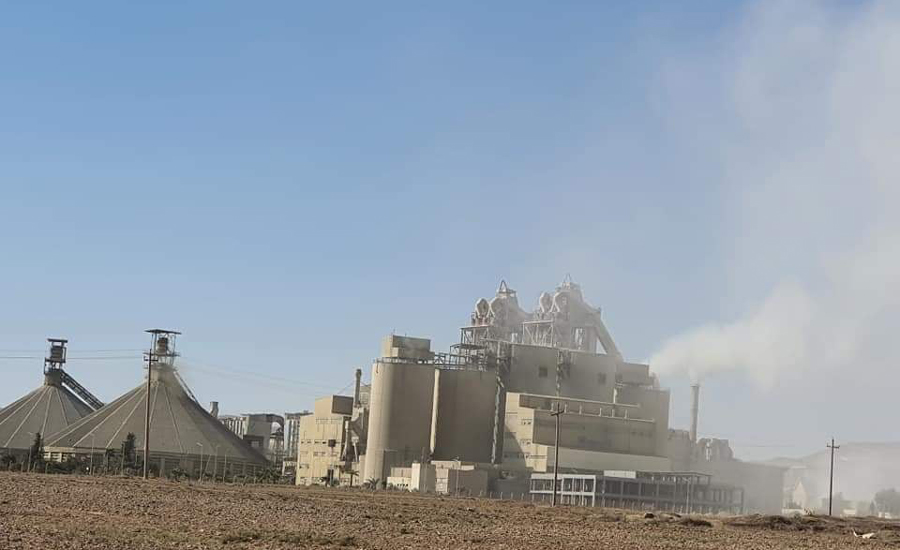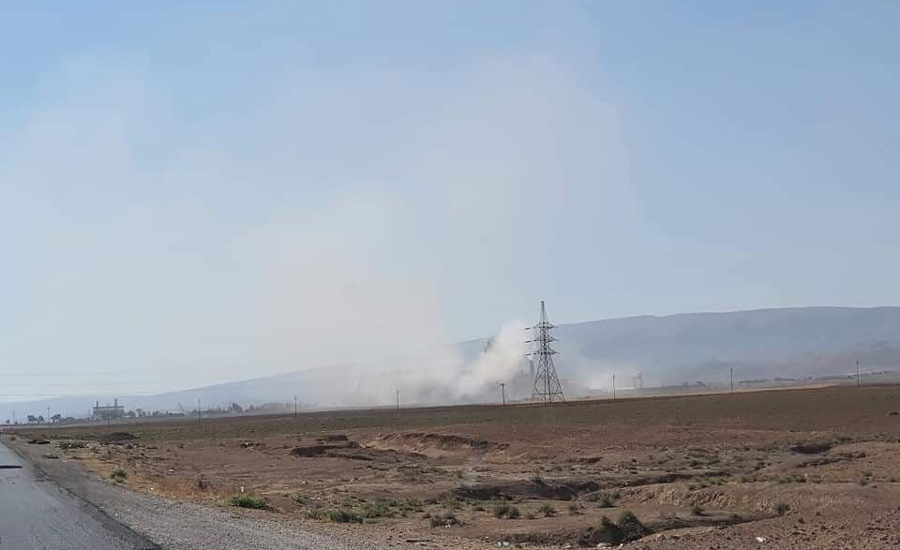Residents of villages near Shingal Cement Factory complain about the fumes emitted from the factory which harms their agricultural crops. They are also upset about the presence of that factory in their area, which did not create job opportunities. They only got "the fumes that they inhale."
Shingal Cement Factory was established in 1983, only 12 km to the east of the Shingal district center, with a daily production capacity of 3,000 tons, as one of the largest in Iraq.
"The fumes from the factory reach our village. Our agricultural production has declined for years because the smoke is continuous on daily bases. We ask to find a solution to this problem," Qasim Muhammad, a resident of the village of Bajcy, only 5 kilometers from the factory, told KikrukNow
Our agricultural production has been declining for years because the smoke is continuous on daily bases
The cement factor y is only 500 meters away from Bab al-Khan village. Mohsen Ali, who lives with his 10-member family says, "the fumes are thick and pollute our agricultural crops, including grain crops, and damage them...Our crops are not popular in the market. Our farmland is in the vicinity of the factory, yet still we have to cultivate it.”
"We have repeatedly asked the factory officials to compensate us or find a solution to the fumes' problem, but our efforts were fruitless," Ali desperately said.
The plant provides the residents of that village with a small amount of electrical, which is only sufficient for lighting.
Shingal, located 120 west of Mosul, center of Nineveh province, on the border of Iraq-Syria, is home to the Ezidi religious community considered infidels by the extremist militants of Islamic State in Iraq and Syria ISIS.
A report by KirkukNow end of October found out that over 60 projects of renovation have been halted by the government in the war-ravaged Shingal due to the tense relations between the federal Iraqi government and the Kurdistan Regional Government KRG.

Shingal, October 2021- Shingal Cement Factory. Farhan Ibrahim
According to international standards, 30% to 40% of the factory area should be greenery, while Shingal Cement Factory does not contain green areas and has eliminated several kilometers of green areas surrounding it.
Another international standard requirement about location of cement plant is that it should be away from residential areas but the Shingal Cement Factory did not take into account this condition as well.
"We want the villagers to also benefit from the factory and provide us with job opportunities, yet we are deprived even of that," Ali said.
We want the villagers to also benefit from the factory and provide us with job opportunities
The factory is owned by the Iraqi government and an investor. Production stopped in the era of ISIS control, but it has resumed production in 2017.
Khalil Barakat, director of the Shingal Cement Factory, told KirkukNow "Fumes do not always rise from the factory, as residents of the area say... A technical defect occurred in the factory a month ago, which led to an increase in the rising fumes, but the problem has now been addressed and the fumes are no longer rising."
But Mohsin Ali disagrees. "Whenever the factory works, we get fumes. What they say about the smoke coming out of the factory only recently is not true."
Nevertheless, the factory manager says, "A number of our workers are from the villages around the factory. We do help the people of the area a lot."
Mayor of Shingal district, Fahad Hamid, confirms the story of the villagers and saying the residents of the area have been complaining since 2017.
“The fumes of the factory have damaged the farmers’ crops, as well as the pastures and livestock breeding. Sometimes the sky of Shingal gets dark because of the density of the factory fumes. We demand a solution to this problem as soon as possible."
The impoverished community whom still half back home and the rest prefer life under tents in the camps of Duhok province in the adjacent Kurdish region; lead a severe life amid absence of basic public services.
The war against IS left the province of Ninewa in general and the cities of Mosul and Shingal sunk in debris. Millions of tons of debris require billions of Dollars to collect and rebuild the devastated region.
The mayor of Shingal says that he inspected the factory on the ground and asked them to provide job opportunities for at least the residents of the area.
“We told them that it is not permissible for the factory to be in the name of Shingal, and they brought workers from Tal Afar, Mosul and other areas. It is not conceivable that it benefits others and harms Shingal, but they did not care about that,” Hamid added.





